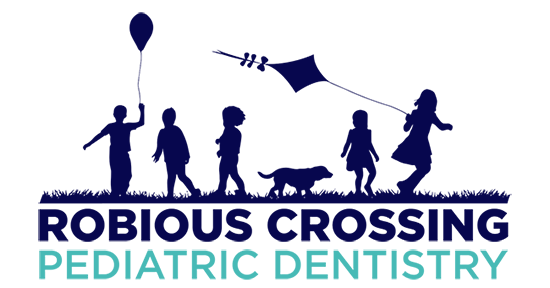Pediatric Nerve Treatments in Midlothian, VA
Does your child have a toothache that won’t go away? Have you noticed discoloration of one of their teeth? Our dentists offer two specific endodontic treatments to save a tooth affected by internal tooth damage: pulpectomy and pulpotomy.
What’s Inside My Child’s Teeth?
The only visible part of our teeth, without x-rays, is called the crown. We see the pearly white tooth enamel that coats teeth above the gum line. Like an iceberg, however, our teeth have many parts not visible to the naked eye.
At the core of every tooth in your child’s mouth lives a nerve and connective tissue known as pulp. When a cavity, crack, internal tooth infection, or trauma damages a dental nerve, the tooth will ache and may experience other symptoms.
As a parent, if you notice any abnormality in your child’s teeth or gums, please call us for an appointment. If diagnosed, we will relieve your child’s pain and restore good oral health with pediatric nerve treatments, so your kiddo will have a reason to smile again!
Symptoms of Dental Nerve Damage in Children
The first symptom of dental nerve damage is often pain, but a patient can have nerve damage without any symptoms. The following symptoms could indicate that your child needs to visit our office.
- Toothache: Both persistent pain and on-and-off pain could indicate nerve damage in a tooth. In some cases, pain worsens when chewing food, applying any pressure to the affected tooth, or when hot/cold foods contact the tooth.
- Pain upon pressure: When biting down on the affected tooth, your child may experience sharp pain.
- Tooth sensitivity: In addition to temperature sensitivity, your child’s tooth may ache when he eats or drinks acidic foods (orange, lemon, lime foods or drinks) or sweets. Commonly, the toothache will continue for a while after eating or drinking citrus or sweets.
- Gum sensitivity and swelling: Around the damaged tooth, your child’s gum tissue may swell, redden, and be sensitive to the touch. Most often this occurs when a tooth develops a pulpal infection or inflammation.
- Gum recession: When gums pull away from a tooth in response to dental nerve damage, the tooth will become more sensitive. Our teeth roots have no protective enamel. Exposure of teeth roots leads to increased pain.
- Color change: A damaged dental nerve may cause tooth discoloration. You will notice the tooth becoming darker as the nerve dies and the pulp breaks down.
- Abscess: If a tooth incurs significant nerve damage or nerve damage is left untreated, a pocket of pus can accumulate at the root of the tooth, within the jaw. Symptoms of an abscess include acute pain, swelling of gum tissue, and in some cases, fever.
So that we can preserve the optimal amount of natural tooth structure during dental nerve treatments, bring your kiddo in at the first sign of symptoms.
DID YOU KNOW?
If a tooth is experiencing an infection, it is important to treat it immediately to prevent the infection from spreading further.
How We Diagnose Dental Nerve Damage
At your child’s appointment, the dentist will evaluate his teeth and gums for signs of decay, infection, swelling, discoloration, and gum recession or swelling. Since we cannot see a dental nerve with the naked eye, diagnosing dental pulp issues relies heavily on X-rays.
About Dental Nerve Treatments
We often treat dental nerve issues in both primary and permanent teeth with either a pulpotomy or pulpectomy. Rest assured, we will keep your child comfortable during dental nerve treatments. Our primary goals are to (1) stop pain, (2) restore good oral health, and (3) restore comfortable oral function.
- With pulpotomy, we remove a tooth’s pulp within the crown but not within the root. We use this dental nerve treatment most often for baby teeth that have developed deep decay or that have sustained trauma. This approach allows the baby tooth to remain in place, preserving space for the permanent tooth, until it naturally falls out.
- A pulpectomy is the first part of root canal therapy, but a crown isn’t required. For a pulpectomy, your children’s dentist will remove all pulp from the affected tooth and insert a manmade substance in its place. This allows the tooth to remain intact and useful, though the tooth’s nerve and blood supply are no longer present.
Treat Dental Pain in Midlothian Today
Has your child been complaining about a toothache? Have you noticed discoloration of one of your kiddo’s teeth? Has your child experienced trauma that may have harmed his teeth? The best course of action for a parent is to bring your child in for an appointment with one of our trusted, gentle children’s dentists.
Contact Robious Crossing Pediatric Dentistry today if your child complains of a toothache or if they have been diagnosed with nerve damage that may require dental nerve treatments.



